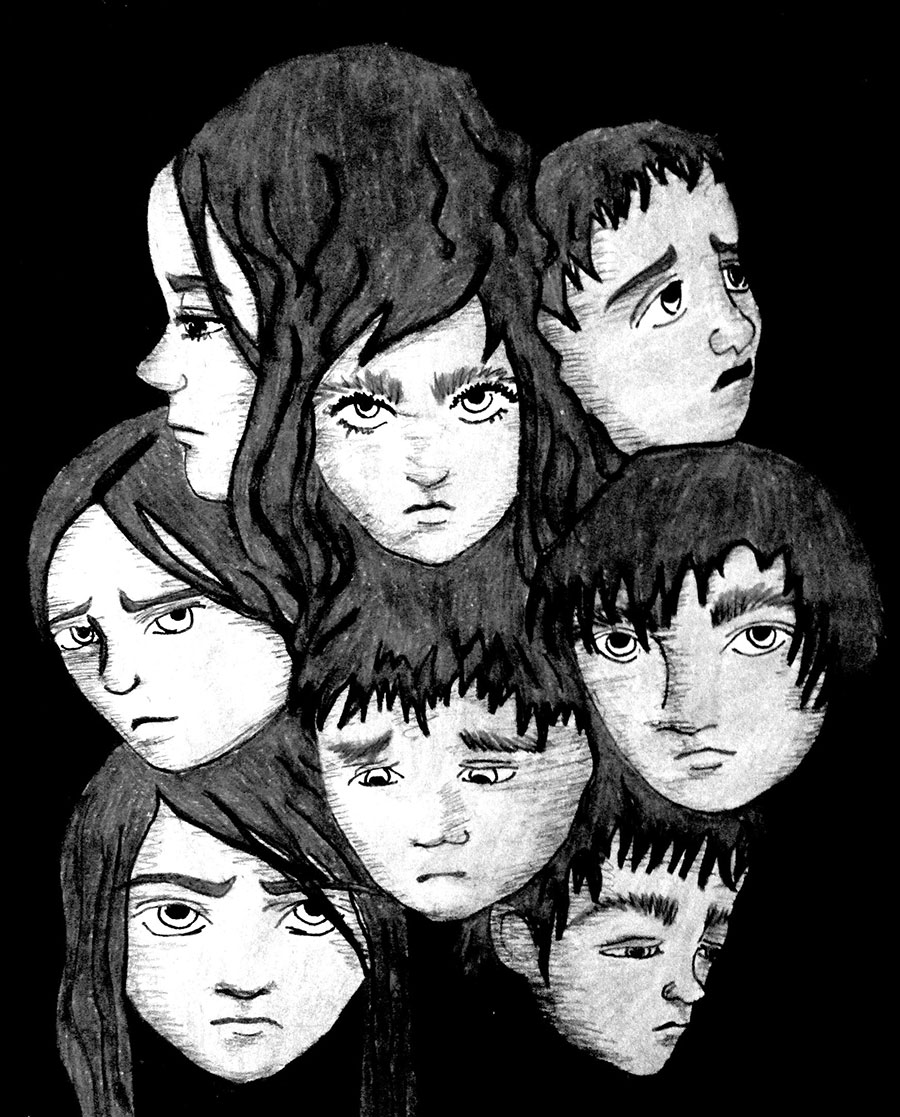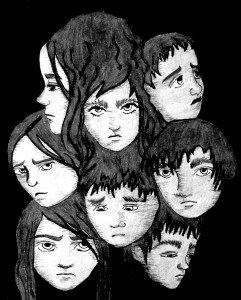Humanitarian approach to border crisis needed
The United States, a country with a rich immigrant tradition, is currently experiencing an identity crisis. Tens of thousands of migrant children from Central America have been apprehended while attempting to cross into the United States from Mexico since January, according to the Department of Homeland Security.
Many of these children are fleeing their home countries unaccompanied due to persistent drug and gang violence or sexual abuse, and they are in search for a better life in the United States. Some are also in search of family or friends already living in the States. In early June, President Obama called the issue an “urgent humanitarian situation.” In July, he began seeking billions of dollars in aid to deal with the crisis.
Since then, the president has been mum on the issue along with most politicians who aren’t gearing up for mid-term elections. This stance needs to change immediately if those in Washington want to have any credibility with the nearly 28.2 million Hispanics who will be eligible to vote in 2016. This group is also an increasingly important voting bloc in swing states such as Florida, Arizona, Nevada and New Mexico.
Part of the president’s solution involves utilizing the funds to create a multi-agency federal task force, which would be overseen by the Federal Emergency Management Agency (FEMA). This is the same government-run organization that botched the Hurricane Katrina response effort in 2005. The Obama administration is also considering executive authority to quickly deport the children back to their respective countries, a seemingly quick fix to the problem.
Though creating a task force is a good start, the federal government must also engage Central American leaders regarding lax child protection laws that have allowed these children to leave home in the first place.
Violent gang-related crime in the areas of Central America that these children are coming from continues to rise. The New York Times reported that in El Salvador, there are 77 percent more murders of children ages 17 and under than a year ago. According to the Department of Homeland Security, the city in Central America with the most migrant children arriving in the United States — more than 2,200 between January and May — was San Pedro Sula in Honduras. This same city is home to the world’s highest homicide rate.
The United States needs to stem the heavy violence among children in these cities by sending in National Guard troops to build a peace-keeping effort and help to restore trust in local politics and police forces, which has fizzled as of late.
The United States has been put in an especially difficult position given the fact that the country needs to balance its outdated illegal immigration policies with the fact that children aged 5 to 17 are willing to risk their lives to leave their homes for a better life.
The media has shed negative light on the response from communities and towns that are being directly impacted by migrant children and the need to house them. In July, protestors in Murrieta, California even went so far as to create a human blockade and stop three busloads of children who were headed to an immigration Border Patrol station for processing.
In a desperate effort to pick up last-minute voter support ahead of his primary, Arizona Speaker of the House Andy Tobin voiced his concerns on the undocumented children from Central America and their ability to infect Americans with Ebola. No case of the Ebola outbreak has been reported to originate outside of Africa.
This type of behavior is not what this country was founded on. The president and local agencies do, however, have to deal with setbacks. The average time for a case in immigration court is roughly 280 days, according to a 2010 Transactional Records Access Clearinghouse (TRAC) report.
One solution would be to separate each case on a country-by-country basis. This would involve appointing court specialists along with pro-bono or private practice attorneys with country-specific backgrounds to help deal with the backlog. Each specialist would be assigned a set number of cases to handle and must have some knowledge and work experience with the country they are chosen to work with.
Progress on the educational front is key as well. According to the Office of Refugee Resettlement, a total of 37,477 children have been released to an adult sponsor, often a family member. With summer winding down, these children are eligible to begin public school in a few short weeks due to federal law stipulating that educational agencies are required to provide uniform access to public education regardless of immigration status. Only time will tell how they are received in this respect.
The quote by American Poet Emma Lazarus at the base of the Statue of Liberty in New York City says it best: “Give me your tired, your poor, / Your huddled masses yearning to breathe free, / The wretched refuse of your teeming shore. / Send these, the homeless, tempest-tossed to me, / I lift my lamp beside the golden door!”
Political leaders in Washington need to follow Lazarus’ words closely in making a positive impact in the lives of these children by giving them proper due process for each case, a precedent that will set an example for other countries to follow.



No thankfully every major city in the USA isn’t experiencing drug wars, gang violence and/or police brutality…..Also, for any issues in those cities we rely on the state and local governments for policy changes/updates etc 99% of the time.
You can’t compare Syria and Libya with any country in Latin America, that’s like comparing apples to oranges mi amigo. Plus the voting bloc of hispanics in this country (USA) is too large for any official to ignore.
Is not every major city in the USA also experiencing drug wars, gang violence and police brutality. Why should these children be treated any different from the people already here? There are clear policy changes that could alleviate the the problems, yet politicians and voters like the status quo. President Obama already orders killings overseas, missile strikes, grants of weapons and the like. Why not use those same tactics to solve this humanitarian crisis? Why should he use one set of tactics in Syria and Libya and another when it is Mexico, Guatemala and Ecuador?